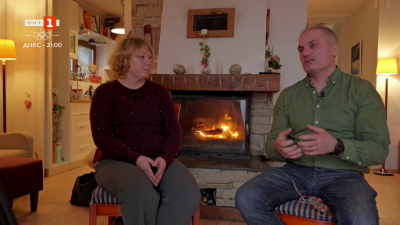Burgas Hospital successfully treated a woman infected with rare 'Flesh-Eating' bacterium

A woman infected with the rare but extremely dangerous bacterium Vibrio vulnificus has been successfully treated at Burgas City Hospital.
This bacterium can lead to sepsis very quickly, within hours after the infection, and, in severe cases, to death, so it has earned the nickname "flesh-eating bacterium." Notably, there are no known records in Bulgaria of anyone surviving a bloodborne infection from this bacterium. The only case described in the literature is of a Belgian tourist who refused hospitalisation and died within hours, said Dr. Kalina Tsankova, head of the Microbiology Laboratory at the University Hospital in the coastal city of Burgas. Five fatalities were documented in scientific publications in Tampa Bay, Florida, last year.

The 61-year-old woman had been on vacation at Silistar camp site. She injured her leg on the sun bed but despite the open wound she entered the sea. The very same day, the leg swelled, large blisters appeared, and body temperature rose.
Upon arrival at the hospital, she was examined to by surgeon Dr. Todor Shuplev.
"We found an infection. Surgical treatment of the leg followed to prevent it from spreading. We also took a microbiological sample," he said.
Dr. Kalina Tsankova recognised the bacterium immediately, although she had seen it only three times during her career.
"This bacterium is motile, it does not grow in an environment in which similar bateria grow," she explained.
An antibiogram was conducted immediately, and antibiotic treatment was started, which in parallel with the surgical treatment gave results, but not instantaneously.
"There was a moment when symptoms of polyorgan failure, of sepsis, appeared. The woman was dizzy, she could not recognize her relatives".

We were consulted by our colleagues from the intensive care unit, we also had methodical help from the Clinic of purulent septic surgery at Pirogov," said Dr. Todor Shuplev. After nearly a month of fighting for her life and 10 operations, in which the entire staff of the Surgery unit participated, the woman was discharged in good condition. And with two legs - amputation is usually necessary in such cases to prevent the infection from spreading.
"People have no idea what a big mess a wound can lead to. It's an open door for infections, so they should be careful and not go into the sea with fresh wounds," doctors urge.
They have reports from doctors from anther hospital about three other patients who died this summer from sepsis after contracting the same bacteria.
"A characteristic of all is the reduced immune response - elderly, with accompanying illnesses. One should not panic because there have always been infections and there always will be," Dr. Tsankova said.
According to her, the unusual spread of the bacterium is due to the excessively hot weather this summer, with little rainfall. Vibrio vulnificus lives in warm, slightly salty water, usually where areas of fresh water - such as rivers - meet the sea.
The patient's one-month treatment exceeded several times the cost of the clinical pathway. The medicines alone cost 9,000 BGN, not counting other consumables, the ten operations, the labour of doctors, nurses, and lab technicians.
"When questioning why public hospitals face financial difficulties, this is an example. We tend to have one such patient every three to four months who requires extensive treatment," stated the Second Surgery unit.
The case is being documented in a scientific publication and will be presented at an upcoming congress.
Get the latest news wherever you are!
Follow us on
Facebook
and
Instagram
Follow BNT’s YouTube channel
You can now also watch us on
TikTok
Find us on
Google News























